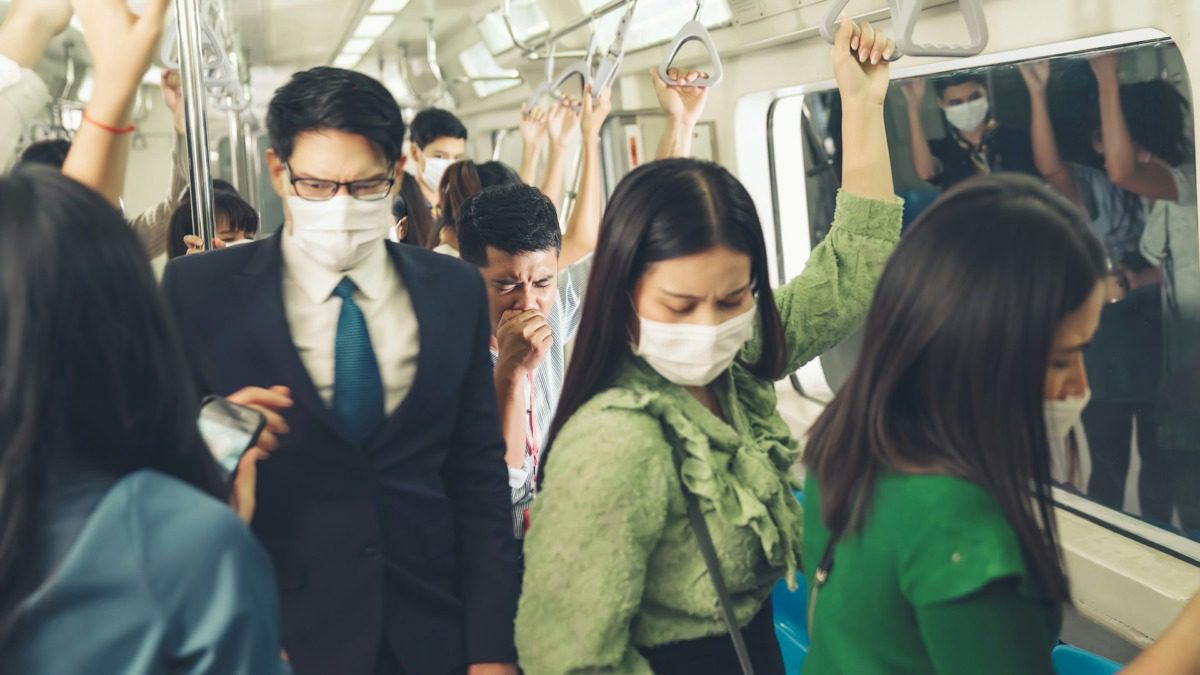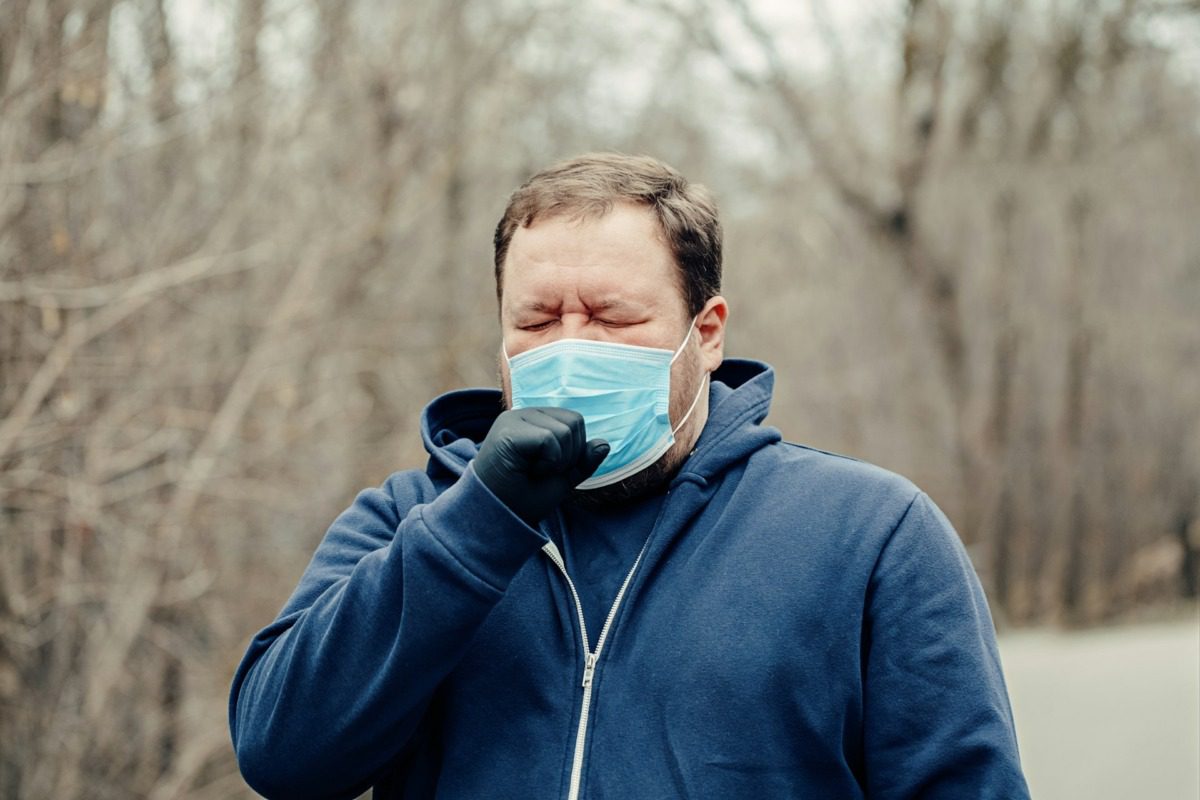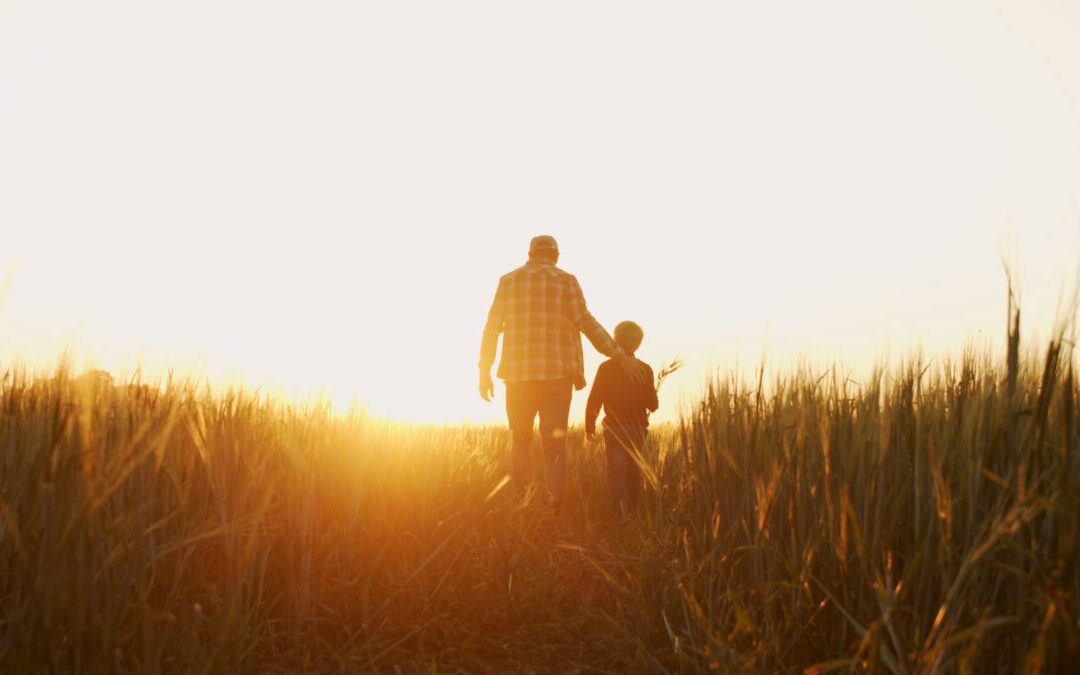
People wearing masks on a train, with a man unmasked and coughing in the background. (Photo courtesy of Getty Images/Unsplash).
DHS urges Wisconsinites to vaccinate against flu, COVID-19, and RSV as cases rise, emphasizing protection for vulnerable groups, including infants and seniors.
As Wisconsin faces a surge in respiratory illnesses, health officials are sounding the alarm about dangerously low vaccination rates across the state. With only 31% of residents having received their flu shots and a mere 15% getting updated COVID-19 vaccines, public health experts are emphasizing the critical importance of vaccination protection during this high-risk season.
Rising respiratory illness concerns across Wisconsin
The Wisconsin Department of Health Services (DHS) reports significant increases in flu, COVID-19, and respiratory syncytial virus (RSV) cases throughout the state. Emergency departments are seeing a particular surge in respiratory virus cases among vulnerable populations, including infants, young children, and older adults.
DHS Respiratory Disease Epidemiologist Tom Haupt emphasizes the urgency of vaccination, stating, “The best way to protect yourself and those around you from respiratory viruses is to get vaccinated—it’s never too late.” He adds that vaccination helps prevent transmission to high-risk individuals who may experience severe complications.
Vaccination options and availability
Multiple vaccination options are currently available for Wisconsin residents. Flu and COVID-19 vaccines are available for everyone 6 months and older. RSV protection is available for specific groups:
- Infants 8 months and younger
- High-risk babies aged 9-19 months
- Pregnant individuals between 32-36 weeks
- Adults 75 and older
- High-risk adults aged 60-74
Residents can access vaccines through various channels, including primary care providers, local health departments, community clinics, and vaccines.gov. For those without insurance coverage, assistance programs like the Vaccines for Children program and Vaccines for Adults program are available.

Man wearing a blue hooded sweatshirt, black gloves, and a mask, coughing into his hand. (Photo courtesy of Getty Images/Unsplash).
Prevention strategies beyond vaccination
The DHS recommends additional protective measures including:
- Regular hand washing with soap and warm water
- Disinfection of frequently touched surfaces
- Minimizing contact with sick individuals
- Maximizing ventilation with fresh air
- Utilizing high-quality masks
- Staying home when experiencing symptoms
For current information about respiratory illness activity, residents can consult the DHS Weekly Respiratory Report or visit the DHS Respiratory Illness Data webpage.
This story was generated in part by AI and edited by The UpNorthNews staff.
This article first appeared on Good Info News Wire and is republished here under a Creative Commons license.
READ MORE: Medical debt will no longer appear on credit reports for all Americans

Why health insurance is so expensive this year — and what you can do about it.
Michelle Andrews November 4, 2025 This year’s Obamacare open enrollment period, which started Nov. 1 in most states, is full of uncertainty and...

Doc Rivers Calls Out SNAP Delays: ‘We gotta feed our kids’
Milwaukee Bucks head coach Doc Rivers spoke about the current lack of SNAP benefits. Here’s what he said. Before the Milwaukee Bucks faced off...

WI’s Door County residents call in-person CAFO hearing a ‘win’
By Judith Ruiz-Branch The Wisconsin Department of Natural Resources holds its first in-person public hearing in five years this week after...

WI Farmers Union calls for policy investments in rural Wisconsin
By Judith Ruiz-Branch As rural communities in Wisconsin grapple with the increasing uncertainty of federal policies and the government...




